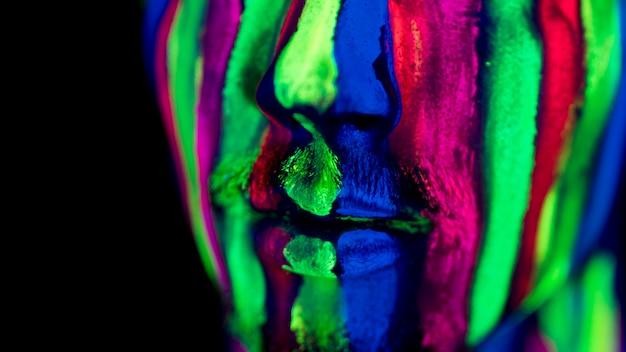Fascinating Facts about LSD

LSD, also known as acid, was first synthesized by Swiss chemist Albert Hofmann in 19
2. LSD is a powerful hallucinogenic drug that alters an individual’s perception, thoughts, and senses.
The effects of LSD can be highly unpredictable, varying from intense euphoria to terrifying hallucinations.
LSD is chemically similar to serotonin, a neurotransmitter that regulates mood, sleep, and appetite.
Research suggests that LSD may have potential in treating certain mental health conditions, such as depression and PTSD.
LSD trips can be influenced by a person’s mindset, surroundings, and emotional state.
The effects of LSD typically begin within 30 to 90 minutes after ingestion and can last up to 12 hours or longer.
LSD is usually taken orally, either in the form of a blotter paper soaked with the drug or as a liquid dropped onto the tongue.
Some users experience synesthesia while on LSD, where they can see sounds or taste colors.
The recreational use of LSD gained popularity in the 1960s during the counterculture movement.
LSD can induce long-term psychological effects, known as flashbacks, even after the drug has left the system.
Microdosing, the practice of taking small doses of LSD, has gained interest for its potential cognitive and creative benefits.
LSD has a low physical toxicity, meaning it is unlikely to cause physical harm in the short term.
LSD can lead to a heightened awareness of one’s emotions and inner thoughts.
Fascinating Facts about LSD part 2
Tripping on LSD can result in a loss of the sense of self or ego dissolution.
LSD is classified as a Schedule I substance in the United States, meaning it is illegal to possess or distribute.
Albert Hofmann famously took the first intentional LSD trip in April 1943, which he referred to as Bicycle Day.
The effects of LSD on the brain are still not fully understood, but it is believed to primarily impact serotonin receptors.
Individuals with a family history of mental health disorders may be more susceptible to adverse reactions to LSD.
The term acid originated from the chemical name of LSD, lysergic acid diethylamide.
LSD is not physically addictive, but some individuals may develop a psychological dependence on the drug.
The use of LSD has been linked to an increased sense of interconnectedness and spirituality in some individuals.
LSD was once used in psychotherapy sessions to aid in the treatment of various mental health disorders.
Bad trips, characterized by overwhelming anxiety and paranoia, can occur on LSD.
LSD is illegal in many countries worldwide, although it remains popular in certain underground subcultures.
The cultural impact of LSD can be seen in art, music, and literature from the psychedelic era.
LSD is detectable in urine for up to three days after ingestion but can remain in hair follicles for much longer.
In controlled settings, such as clinical trials, LSD has shown potential in reducing end-of-life anxiety in terminally ill patients.
Excessive use of LSD can lead to a condition known as hallucinogen persisting perception disorder (HPPD).
The effects of LSD can be influenced by the dosage, purity, and individual tolerance.
Some users report experiencing spiritual or mystical experiences while under the influence of LSD.
LSD can produce profound insights and philosophical thoughts, but these can vary greatly among individuals.
The psychedelic effects of LSD are often described as tripping or going on a journey through one’s mind.
LSD can enhance one’s sensory perception, leading to a more vivid experience of sounds, colors, and textures.
The use of LSD in a supportive and controlled environment is known as psycholytic therapy.
LSD can temporarily remove the boundaries between the self and the external world, leading to a sense of unity.
The effects of LSD on creativity remain a subject of debate and scientific inquiry.
LSD has been found to decrease activity in the default mode network of the brain, which is associated with self-referential thoughts.
The legal penalties for possession and distribution of LSD vary across different jurisdictions.
Inducing a positive mindset and setting can contribute to a more enjoyable LSD experience.
The perception of time on LSD can become distorted, with minutes feeling like hours or vice versa.
Some users claim that LSD has expanded their consciousness and provided them with a new perspective on life.
The mystical experiences induced by LSD have been studied for their potential therapeutic benefits.
LSD can amplify emotions, leading to intense feelings of joy, love, or fear.
The long-term effects of LSD on the brain and mental health are still being researched.

